Papers by Eduardo Brito-Henriques
Turismos De Nicho Motivacoes Produtos Territorios, 2009
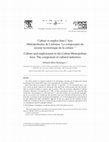
Géographie Économie Société, 2003
Reçu le 10 décembre 2002 ; reçu en forme révisée le 2 mars 2003 ; accepté le 10 mars 2003 Résumé ... more Reçu le 10 décembre 2002 ; reçu en forme révisée le 2 mars 2003 ; accepté le 10 mars 2003 Résumé Cet article analyse la situation actuelle et les dynamiques récentes de l'évolution du secteur économique de la culture (SEC) dans l'aire métropolitaine de Lisbonne (AML). Deux observations ressortent de l'étude effectuée. La première, c'est la constatation qu'il s'agit d'un secteur en pleine expansion et affirmation, étant donné que la plus grande partie des activités, dont on connaît l'évolution, a registré, dans les années 1990, une croissance importante d'emplois nettement supérieure à la moyenne de l'AML. L'autre constatation renvoie à des questions plus territoriales, correspondant à la vérification qu'il y a une forte tendance de concentration géographique de ces activités et de l'emploi qu'elles génèrent, étant tous 2 fortement polarisés par la ville de Lisbonne. La tendance de déconcentration géographique, avec le développement de la spécialisation de zones différenciées dans la périphérie, apparaît, en tous cas, comme une des tendances les plus visibles de l'évolution récente de ce secteur, fait qui est analysé dans la conclusion, du point de vue de ses conséquences pour les politiques urbaines.
Finisterra, 2012
The present paper tries to look at the culture-innovation nexus in periphery. Starting with a the... more The present paper tries to look at the culture-innovation nexus in periphery. Starting with a theoretical discussion on this issue, in which the role of culture in current capitalism is analysed, we raise the question whether the increasing imporance of culture in the present economic context has been creating new opportunities for peripheral regions to innovate, namely by the valorization of tradition.The paper will highlight the results of four case studies from the handicraft pottery sector. These achievements will then be confronted with an exemple of cultural political promotion in an urban area -…
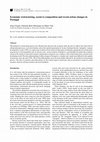
GeoJournal, 1998
The productive restructuring process has affected more than just the economic field, because its ... more The productive restructuring process has affected more than just the economic field, because its effects have been felt on urbanisation processes, on social relations, and on the spatial organisation of society. Starting from the 'metapolis' concept, developed by Ascher (1995), we analyse the evolution of new forms of urban space in Portugal, arguing that new urban forms generate new social inequalities and, in extreme cases, social exclusion. Portugal is a semi-peripheral country that combines certain of the trends in social and economic organisation common to core countries, with certain trends more common in the developing world. Thus the understanding of urban change in Portugal is a complex task, made more difficult by the rapidity of processes since the mid 1970s. The Lisbon Metropolitan Area has been deeply affected by the productive restructuring process. The role of economic and urban policies in the Lisbon region is discussed, and an assessment is made of certain measures aimed at solving economic and social problems.
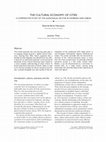
European Urban and Regional Studies, 2000
This article examines the role that big cities play in an ongoing change towards a ‘global cultur... more This article examines the role that big cities play in an ongoing change towards a ‘global cultural economy’. Starting from Allen Scott’s argument that a handful of urban flagships may benefit from this shift, it looks for an alternative approach to the territorial dimension of the ‘culture-economy nexus’ based on a more complex understanding of urban culture. A broad theoretical discussion of Scott’s ideas, as well as on the key concepts of culture, economy and the city, is placed alongside two case studies of the development of the audiovisual (AV) media sector in two European metropolitan regions, Hamburg and Lisbon. The article concludes that the territorial dimension of the ‘culture-economy nexus’ is more than the mere concentration of culturally informed economic activity in a few urban ‘master hubs’. Rather, it can be characterized as a non-linear refracted shift, to a large extent moving along historically and culturally determined trajectories of cities and regions.
Confins. Révue Franco-Brésilienne de Géographie, 2022

Finisterra, 2007
(UGI) decidiu em 2006, na reunião de Brisbane, instituir duas novas comissões, uma dedicada aos e... more (UGI) decidiu em 2006, na reunião de Brisbane, instituir duas novas comissões, uma dedicada aos estudos insulares-a Comissão das Ilhas (C04.36), presidida pelo Prof. Chang-yi David Chang (Universidade Nacional de Taiwan, China-Formosa) e tendo como Secretária a Prof.ª Huei-Min Tsai (Universidade Normal Nacional de Taiwan, também da China-Formosa), e a outra dedicada aos Direitos e Conhecimentos dos Povos Indígenas (C04.35), a que preside o Prof. Jay T. Johnson (Universidade do Nebrasca, EUA). A constituição em simultâneo destas duas comissões não terá sido casual. À sua formação superintenderam razões bastante mais próximas do que à primeira vista poderá transparecer. Ambas, embora de diferentes formas, correspondem à consagração do pensamento pós-colonialista entre as 'sensibilidades autorizadas' da Geografia, ou, por outras palavras, à sua 'institucionalização'. A chancela do pós-colonialismo aplicada ao mundo académico delimita uma área de estudo focalizada na análise e na reflexão sobre os efeitos da colonização e do imperialismo nas sociedades, nas culturas e nos lugares. Inspirada no pensamento de autores como Edward Said, Homi Bhabha e Stuart Hall, a abordagem pós-colonialista procura compreender como o passado colonial continua a determinar no presente (ou seja, mesmo em contextos pós-coloniais) as estruturas de poder e a vida social, quer nas 'metrópoles', quer nas 'colónias', e o modo como ele se interpõe na relação entre as pessoas e os grupos humanos susceptíveis de se definirem em termos de 'colonizadores' e 'colonizados'. O pós-colonialismo tem depois ainda, enquanto projecto científico, a pretensão de conseguir superar esse modo de ver intrinsecamente desigual, introduzindo nas ciências sociais uma outra forma de abordagem alternativa, estruturada a partir do ponto de vista dos grupos que foram 'desempoderados' pelo colonialismo. Essa marca do pós-colonialismo está muito patente e é facilmente detectável na Comissão sobre os Direitos e Conhecimentos dos Povos Indígenas. Na Comissão das Ilhas, a influência do pensamento crítico pós-colonial talvez não seja, num primeiro relance, tão perceptível, mas não deixa de estar igualmente presente. As ilhas ocupam no mundo actual, enquanto territórios, um lugar semelhante ao ocupado pelos povos indígenas, enquanto grupos humanos. A relação das ilhas com os espaços não insulares, ou, no caso das configurações geopolíticas arquipelágicas, das 'pequenas ilhas' com as
Geographia Polonica, 92(1), 2019
Urban ruination is an understudied feature in the life of cities. This article discusses its caus... more Urban ruination is an understudied feature in the life of cities. This article discusses its causes. Based on the study of four shrinking Portuguese cities (Lisbon, Barreiro, Guimarães and Vizela), and using Multiple Linear Regression Analysis as the statistical method, the structure of relationships among ruins, economic change, demographic change, social geography and the characteristics of buildings are discussed. Although the study concludes that ruination is a highly contingent phenomenon, the results show that of all the structural factors , demographic ageing and the obsolescence of buildings (poor housing conditions) are the key causes of ruination in the four cities under study. Links between ruination and socio-spatial processes have also been identified.
This paper aims to analyze the consequences of urban shrinkage in city form. It is based on an in... more This paper aims to analyze the consequences of urban shrinkage in city form. It is based on an inventory of 'perforations' in the urban fabric generated by abandonment - i.e., ruins and vacant land - in four shrinking Portuguese cities. The results show that ruins and vacant land are common in the four cities. In total, 7.8% of the urban area corresponds to ‘perforations’. In some cities, the proportion reaches 32%. The study also demonstrates that the ‘perforations’ tend to occur in a scattered and somewhat unexpected manner in the cities, in both central and peripheral positions. Albeit, the incidence and spatial position of ruins and vacancies appear to vary depending on if the city is more or less compact, and on the degree and temporality of shrinkage.
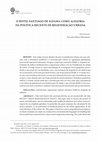
Finisterra: Revista Portuguesa de Geografia, 2017
RESUMO – Este artigo tem por objetivo discutir a turistificação urbana, nas suas rela-ções com o ... more RESUMO – Este artigo tem por objetivo discutir a turistificação urbana, nas suas rela-ções com o urbanismo neoliberal e a reestruturação urbana no capitalismo globalizado, procurando mais particularmente averiguar o papel que a iniciativa JESSICA, enquanto ins-trumento de política neoliberal para a regeneração urbana, teve na turistificação da cidade de Lisboa. O artigo baseia-se numa metodologia de investigação micro-geográfica, proce-dendo a um estudo de caso detalhado, com a reconstituição da biografia de um edifício que foi recentemente convertido para hotel de luxo com financiamento JESSICA. O estudo mos-tra que, nessa mudança funcional, ocorreu uma elitização do local, e que a turistificação veio ocupar o vazio deixado após um longo período de desinvestimento e abandono gradual do edifício. O estudo conclui ainda que a turistificação deve ser vista como uma consequência e um reflexo da globalização na transformação da cidade, e que o fundo JESSICA não enca-minhou mas antes se limitou a coadjuvar uma intenção de investimento que já estava latente. ABSTRACT – THE SANTIAGO DE ALFAMA HOTEL AS AN ALLEGORY OF THE RECENT URBAN REGENERATION POLICY. This paper aims to discuss the process of urban touristification, and its relationship with neoliberal urbanism and urban restructuring in the era of global capitalism. In particular, the paper examines the role played by the Jessica initiative, as an instrument of neoliberal policy for the urban regeneration, in the touristification of the Lisbon city. This paper is based on a micro-geographical investigation, in which a detailed case study was conducted to reconstitute the biography of a building that has recently been converted into a luxury hotel using Jessica financing. The study shows that Recebido: maio 2017. Aceite: agosto 2017.
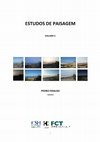
Forgotten and abandoned spaces where biological beings impose their presence under scarce human c... more Forgotten and abandoned spaces where biological beings impose their presence under scarce human control are very common in contemporary cities. However, they are usually viewed in a critical manner. The most common responses of urban planners and politicians for reversing ruins and occupying vacant land have been through massive capital investments in urban regeneration operations.
This paper aims to develop a different perspective on abandoned urban space. Special attention is paid to the ecological and landscape value of these areas, highlighting the great potential of such wild urban interstices in the construction of a more sustainable urban future. Using the aesthetic approach of naturalistic landscape design, alternative hypotheses of intervention in vacant lands are equated based on a review of international experiences. We end with a reflection on the possible applications of such interventions to terrains vagues in Lisbon’s East Zone.
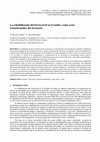
RESUMEN: La rehabilitación de la red ferroviaria ecuatoriana y su declaración como patrimonio sim... more RESUMEN: La rehabilitación de la red ferroviaria ecuatoriana y su declaración como patrimonio simbólico e identitario tiene la potencialidad de ser un proyecto turístico exitoso, para desarrollo territorial y económico local. Su rehabilitación, a partir del año 2008, generó transformaciones en las dinámicas de relacionamiento de redes y actores en zonas cercanas a la vía férrea. A través de la reapropiación y revalorización de los territorios se consolidaron nuevas redes y emprendimientos productivos, los mismos que facilitaron procesos para el desarrollo local, ofreciendo oportunidades y mejoras en la calidad de vida de poblaciones cercanas a la vía férrea. Con base en la Teoría Actor-Red (TAR) de Latour (2008) se realiza un análisis cualitativo de la red ferroviaria rehabilitada reconociéndola como un Actor con capacidad de participación y actuación en las redes territoriales. Sus diferentes agenciamientos ha facilitado la (re)activación de actores y redes en el territorio. Desde un enfoque basado en el principio de simetría generalizada en las redes territoriales (con base en su noción rizomática), se analiza los relacionamientos entre los actores, los mismos que mediante sus agenciamientos producen figuraciones que resultan en transformaciones sociales. La red ferroviaria, como atractivo turístico patrimonial, impulsa la participación de nuevos actores y dinámicas en el desarrollo local; generando transformaciones en las relaciones sociales y comerciales entre las poblaciones con problemas de aislamiento y empobrecimiento.
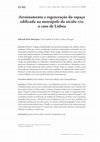
EURE, 2017
RESUMO | Ruínas e espaços abandonados são presenças ubíquas nas cidades contem-porâneas. Talvez p... more RESUMO | Ruínas e espaços abandonados são presenças ubíquas nas cidades contem-porâneas. Talvez por serem considerados elementos indesejados e anómalos, são um tema pouco tratado nos estudos urbanos. Neste artigo, trabalha-se em vista a uma teo-ria da ruína urbana moderna. Tomando por referência o caso da área metropolitana de Lisboa (Portugal), sustenta-se que os abandonos e arruinamentos são parte integrante da mutabilidade das formas urbanas imposta pelo progresso e que a aceleração do tempo na modernidade, ao radicalizar o obsolescimento dos objetos, intensifica esses processos. Abandonos e arruinamentos tendem a ser mais súbitos e aleatórios, irrom-pendo no tecido urbano de forma caótica e fractal, tanto em espaços centrais como nas periferias. Demonstra-se, por fim, que as políticas de regeneração urbana estão a favorecer o reinvestimento nas áreas centrais, embora de forma seletiva, e que se assiste a uma tendência recente de periferização dos arruinamentos. PALAVRAS-CHAVE | teoria urbana, renovação urbana, áreas metropolitanas. ABSTRACT | Ruins and derelict spaces are ubiquitous presences in contemporary cities. Probably because they are seen as undesirable and anomalous elements, scarce attention has been paid to them in urban studies. A theory of modern urban ruin is attempted in this paper. Using the Lisboan metropolitan area (Portugal) as case study, it is argued that dere-liction and ruinification are part of the mutability of urban forms imposed by progress. The acceleration of time in modernity, by making the obsolescence of objects easier and faster, intensifies those processes. Dereliction and ruinification tend to occur more suddenly and randomly, breaking into the urban space in a chaotic and fractal geography, which reaches both central and peripheral areas. Finally, it is demonstrated that urban regeneration policies are favoring reinvestment in central areas, albeit selectively, and that a trend of ruins shifting to periphery is under way.
Finisterra Revista Portuguesa De Geografia, 1997
The present paper tries to look at the culture-innovation nexus in periphery. Starting with a the... more The present paper tries to look at the culture-innovation nexus in periphery. Starting with a theoretical discussion on this issue, in which the role of culture in current capitalism is analysed, we raise the question whether the increasing importance of culture in the present economic context has been creating new opportunities for peripheral regions to innovate, namely by the valorization of tradition.
Finisterra Revista Portuguesa De Geografia, 2002
Resumo -Nos dois últimos decénios do século XX, as sociedades democráticas desenvolvidas passaram... more Resumo -Nos dois últimos decénios do século XX, as sociedades democráticas desenvolvidas passaram por um conjunto de alterações que envolveram não só mudanças no plano económico, como também no plano societal e político. Uma das mais estimulantes teorias desenvolvidas com o intuito de explicar essas mudanças foi a que desenvolveu a escola regulacionista francesa, teoria essa que aliás tem tido grande acolhimento e tem sido usada na interpretação de numerosos aspectos das sociedades contemporâneas, sobretudo dos que se articulam mais directamente com a economia.
Finisterra Revista Portuguesa De Geografia, 1991
Finisterra, 2002
Resumo -Nos dois últimos decénios do século XX, as sociedades democráticas desenvolvidas passaram... more Resumo -Nos dois últimos decénios do século XX, as sociedades democráticas desenvolvidas passaram por um conjunto de alterações que envolveram não só mudanças no plano económico, como também no plano societal e político. Uma das mais estimulantes teorias desenvolvidas com o intuito de explicar essas mudanças foi a que desenvolveu a escola regulacionista francesa, teoria essa que aliás tem tido grande acolhimento e tem sido usada na interpretação de numerosos aspectos das sociedades contemporâneas, sobretudo dos que se articulam mais directamente com a economia.
Num sinal bem expressivo da actual reabilitação da geografia cultural, visível em diversas comuni... more Num sinal bem expressivo da actual reabilitação da geografia cultural, visível em diversas comunidades geográficas, foi publicada em 1995 uma interessante e útil obra em língua francesa sobre a matéria, da autoria de Paul CLAVAL2. Poucos nomes estão tão estreitamente ...

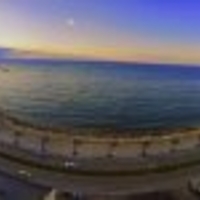









Uploads
Papers by Eduardo Brito-Henriques
This paper aims to develop a different perspective on abandoned urban space. Special attention is paid to the ecological and landscape value of these areas, highlighting the great potential of such wild urban interstices in the construction of a more sustainable urban future. Using the aesthetic approach of naturalistic landscape design, alternative hypotheses of intervention in vacant lands are equated based on a review of international experiences. We end with a reflection on the possible applications of such interventions to terrains vagues in Lisbon’s East Zone.
This paper aims to develop a different perspective on abandoned urban space. Special attention is paid to the ecological and landscape value of these areas, highlighting the great potential of such wild urban interstices in the construction of a more sustainable urban future. Using the aesthetic approach of naturalistic landscape design, alternative hypotheses of intervention in vacant lands are equated based on a review of international experiences. We end with a reflection on the possible applications of such interventions to terrains vagues in Lisbon’s East Zone.
We explore these missing links through an exploration of the Matinha Gasworks site, located in the Eastern Zone of the city of Lisbon, Portugal, and deactivated in 2001. It is a vacant land, with several ruined derelict constructions of a gasworks. We draw upon archival work, remote sensing techniques, and post-phenomenological fieldwork to explore the 80-year long process of construction and ruination of the Matinha Gasworks site. Our findings highlight the accumulation of distinct temporalities, scales, matters, and subjectivities in the production of the urban.